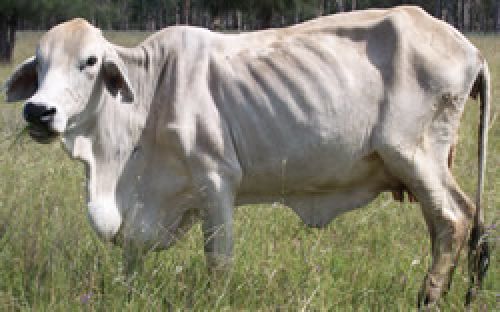Understanding pimelea poisoning of cattle
A guide to proactive planning to prevent pimelea plant poisoning
Toxic pimelea species (desert riceflowers and flaxweed) are native plants found throughout inland Australia on pastoral lands. Three ephemeral species (Pimelea simplex, P. elongata, and P. trichostachya) are poisonous to livestock, resulting in heavy losses in some years.
This booklet describes the clinical signs of pimelea poisoning, treatments and management strategies, and includes results from recent experimental feeding and herbicide trials, as well as case studies detailing the personal experiences of producers. The guide will enable landholders to deal proactively and more effectively with the incidence of pimelea, and improve the sustainability of cattle production in susceptible regions across Australia.
- Price:
- Free
- Product author:
- Queensland Primary Industries and Fisheries
- Publisher:
- Department of Employment, Economic Development and Innovation
- Release/publish date:
- 11 September 2009
- Version:
- 1
- Format:
- Hard copy and electronic (PDF)
Product information
'Understanding pimelea poisoning of cattle' is a 42-page booklet, which describes the clinical signs of pimelea poisoning, treatments and management strategies, and includes recent experimental feeding and herbicide trials, plus case studies detailing the personal experiences of producers.
This booklet was written for cattle producers by scientists from Queensland primary industries and fisheries, and is part of a joint initiative between Agforce, The University of Queensland, New South Wales Department of Primary Industries and Primary Industries and Resources South Australia, with funding from Natural Heritage Trust.
Pricing and ordering information
This booklet is free and is available from Biosecurity Queensland's Customer Service Centre or can be downloaded from this website.
Downloads
Warning - This file is large and may take some time to download. Alternatively, you can obtain a hard copy of the booklet from the Customer Service Centre.


